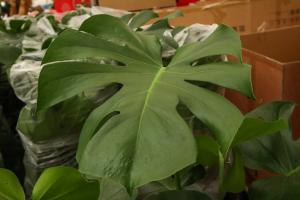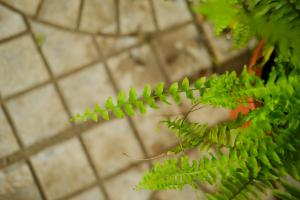Is Ocean Water Good for Plants?
The ocean is known for its vast body of saltwater that covers more than 70 percent of the earth's surface. While it's considered essential for marine life, can ocean water be beneficial to plants? In this article, we'll explore the use of ocean water as a potential source of plant nutrition.
Ocean Water Composition
Ocean water is saline, meaning it contains a high concentration of salt. On average, it contains 3.5% (or 35,000 parts per million) of salts such as sodium, chlorine, magnesium, and calcium. It also contains micronutrients like iron, copper, and zinc. Because of its high salt content, ocean water is not suitable for drinking or irrigation without treatment.
Potential Benefits of Ocean Water for Plants
Despite the high salt content of ocean water, it does contain beneficial nutrients that can be used by plants. The micronutrients in ocean water can act as fertilizers, providing plants with nutrients they need to grow. Some plants that are native to the seashore have adapted to the salty environment and can thrive in saltwater. These plants include mangroves, beach grass, and sea oats.
In addition to providing nutrients, ocean water can also help combat soil salinization. Salinization occurs when soluble salts accumulate in the soil and can be detrimental to plant growth. By adding ocean water to the soil, the salts can be diluted, and soil conditions can improve.
Potential Risks of Using Ocean Water for Plants
While there are potential benefits to using ocean water for plants, there are also risks. The high salt content of ocean water can be harmful to most plants if used directly. Salt can build up in the soil, making it difficult for plants to uptake water and nutrients and leading to dehydration or death.
Additionally, ocean water may contain pollutants, such as heavy metals or chemicals, which can be harmful to plants and the environment. If ocean water is harvested from polluted areas, it can further damage the ecosystem and be harmful to plant growth. Thus, it's essential to test the water to ensure it's safe for use.
Conclusion
In conclusion, ocean water can provide micronutrients for plants and help combat soil salinization. However, its high salt content can be harmful to most plants, and it may contain pollutants that can harm the environment. If you plan to use ocean water for plants, it's crucial to test the water and ensure it's safe for use. It's also recommended to dilute the ocean water to avoid harming your plants.

 how many times do yo...
how many times do yo... how many planted tre...
how many planted tre... how many pine trees ...
how many pine trees ... how many pecan trees...
how many pecan trees... how many plants comp...
how many plants comp... how many plants can ...
how many plants can ... how many plants and ...
how many plants and ... how many pepper plan...
how many pepper plan...
































